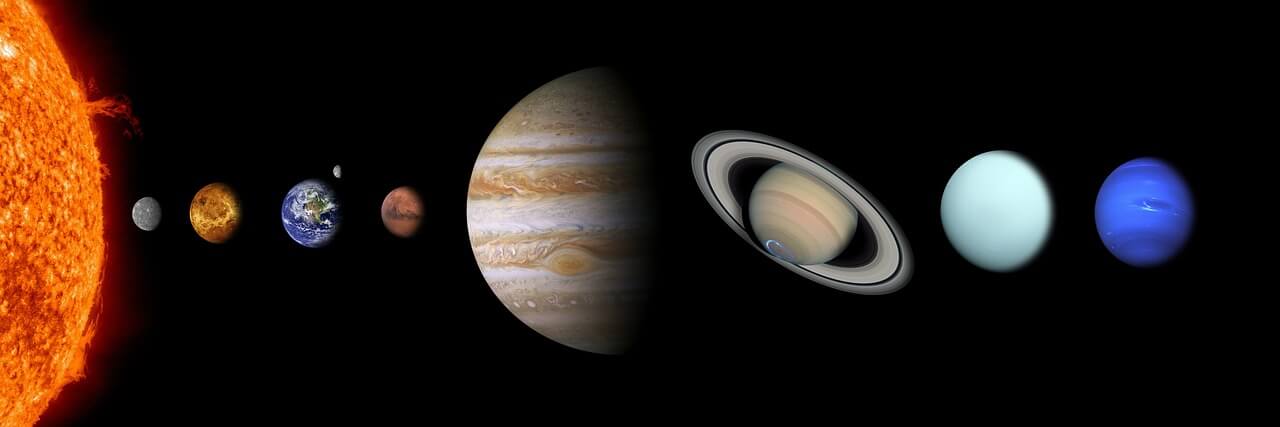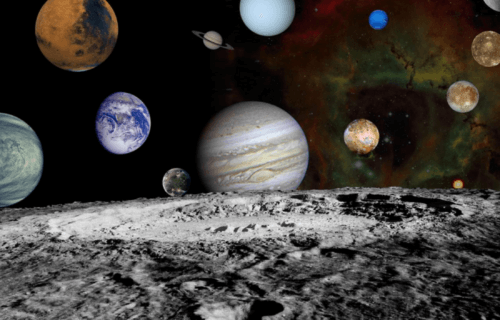RIVERSIDE, Calif. — Our solar system is so fragile that even a small disruption to one of Earth’s biggest neighbors could send us flying out of orbit and into extinction! That’s what a new study by an astrophysicist at UC Riverside is revealing after the scientist asked a simple question — what if there was just one more planet in our solar system?
UCR’s Stephen Kane examined what would happen if there was another terrestrial planet hovering between Mars and Jupiter. In real life, there is a massive gap between these two worlds, with the solar system’s main asteroid belt sitting in this space.
Kane explains that there are two mysteries when it comes to the evolution of our solar system. The first is the large gap in size between our system’s terrestrial worlds and its giant gas planets. Earth is the biggest of the rocky planets closest to the Sun. Meanwhile, Neptune is the smallest of the gas giants and it’s still four times as wide and 17 times more massive than Earth! There is nothing in between in our solar system.
“In other star systems there are many planets with masses in that gap. We call them super-Earths,” Kane explains in a university release.

The other mystery is why a planet failed to develop in between Mars and Jupiter, leaving a massive gap and a collection of space rocks in this space instead.
“Planetary scientists often wish there was something in between those two planets. It seems like wasted real estate,” Kane continues.
According to the new study, it’s lucky astronomers never got their wish!
Another planet would upset the solar system’s fragile balance
Kane ran dynamic computer simulations to examine what would happen if another planet existed between Mars and Jupiter. It turns out that our “new neighbor” would spell disaster for Earth and every other planet!
Results show that adding this super-Earth would disrupt the massive gas giant of Jupiter in such a way that Earth’s orbit would destabilize, knocking us out of the solar system and killing everything on the planet.
“This fictional planet gives a nudge to Jupiter that is just enough to destabilize everything else,” Kane reveals. “Despite many astronomers having wished for this extra planet, it’s a good thing we don’t have it.”

Jupiter holds everything together
The researcher says Jupiter is so much larger than all of the other planets combined. It’s 318 times more massive than Earth, giving it a tremendous gravitational influence over everything nearby.
The study shows that if a super-Earth, a passing star, or any other celestial object disturbed Jupiter even slightly, it would significantly affect all of the other planets. Depending on the location of this fictional super-Earth in our solar system, its presence would eventually eject Mercury, Venus, and Earth from their orbits. The extra planet would also destabilize the orbits of Uranus and Neptune, sending them into the darkness of outer space as well! Even before Earth spirals off into space, the extra planet would change the shape of our world’s orbit — making it uninhabitable for most or all life.
When Kane made this planet smaller in the simulations, placing it directly between Mars and Jupiter, it was able to remain stable for a long period of time. However, even small moves in any direction threw everything out of whack again.
“Things would go poorly,” Kane says.
The astrophysicist adds that these models provide vital insights into what it takes for a solar system to host life. Although scientists only find gas giants like Jupiter out in space about 10 percent of the time, their presence in other solar systems appear to decide whether Earth-like planets have stable and life-preserving orbits.
“Our solar system is more finely tuned than I appreciated before. It all works like intricate clock gears. Throw more gears into the mix and it all breaks,” Kane concludes.
The results are published in the Planetary Science Journal.


Solar system is amazing.